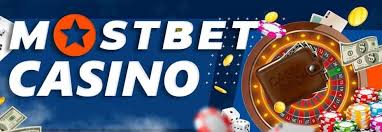
The Psychology of Gambling: Explore the psychological factors that influence gambling behavior.
The world of gambling is not only an arena for chance and luck but also a complex landscape deeply intertwined with human psychology. Many individuals engage in gambling for various reasons, including entertainment, thrill-seeking, and the potential for financial gain. In this article, we will explore the psychological factors that heavily influence gambling behavior, examining the interplay of cognitive biases, emotional drivers, social influences, and the impact of addiction.
One of the first factors to consider is cognitive biases, which are systematic patterns of deviation from norm or rationality in judgment. These biases often lead gamblers to make illogical decisions based on distorted perceptions of risk and reward. For instance, the „gambler’s fallacy“ is a cognitive bias where individuals believe that past random events affect the probabilities of future random events. A common example is the belief that a series of losses means a win is „due,“ resulting in continued gambling in hopes of recouping lost money. Additionally, the “illusion of control” causes gamblers to feel they can influence outcomes in games of chance, leading to increased betting and often irrational decision-making. These biases can fuel persistent gambling behavior, even when faced with significant losses.
Another significant psychological factor influencing gambling behavior is the role of emotions. Affluent individuals may turn to gambling as a form of excitement or thrill-seeking, while those in distress may use gambling as a coping mechanism to escape from their everyday problems. This form of escapism provides a temporary relief from negative emotions, reinforcing gambling as a preferred activity. The high associated with winning can lead to increased gambling over time, as the brain releases dopamine, a neurotransmitter tied to pleasure and reward pathways. Conversely, experiencing losses can evoke feelings of frustration and desperation, compelling individuals to gamble more in hopes of reversing their fortunes. This emotional rollercoaster can lead to a cycle of gambling that is difficult to break.
Sie sehen gerade einen Platzhalterinhalt von Standard. Um auf den eigentlichen Inhalt zuzugreifen, klicken Sie auf den Button unten. Bitte beachten Sie, dass dabei Daten an Drittanbieter weitergegeben werden.
Social influences also play a critical role in gambling behaviors. Peer pressure and social norms can significantly impact an individual’s gambling habits. For many, gambling is a social activity, and the need to fit in with friends or peers can override personal judgments and values. Social settings can amplify the thrill of gambling, with individuals more likely to place bets in group contexts where the excitement is heightened. Furthermore, cultural attitudes toward gambling can dictate how it is perceived and normalized. In societies where gambling is widely accepted or integrated into social practices, individuals may be more inclined to participate, sometimes without considering the potential consequences.

To illustrate this point, consider a vibrant casino atmosphere, where lights flash, sounds of cheers resonate, and the thrill of winning is palpable. This environment can create a sensory overload that enhances the gambling experience, enticing individuals to stay longer and gamble more. The use of incentives, such as complimentary drinks or rewards programs, also serves to keep individuals engaged and coming back for more, reinforcing habitual gambling behaviors.
However, while many people gamble for entertainment without experiencing adverse effects, some individuals may develop gambling disorders. Gambling addiction is a serious issue that affects many, characterized by an inability to control the urge to gamble despite negative consequences. This can lead to financial ruin, strained relationships, and emotional distress. Psychological factors such as impulse control issues, anxiety, and depression often intersect, exacerbating the challenges faced by those struggling with gambling addiction. The cycle of chasing losses can create a detrimental spiral that makes it difficult for individuals to recognize the need for help.
Prevention and intervention strategies focused on the understanding of these psychological factors are crucial. Therapy approaches, such as cognitive-behavioral therapy (CBT), are effective in helping individuals recognize and modify harmful thought patterns related to gambling. Support groups also provide a sense of community and understanding, assisting individuals in sharing experiences and coping strategies. These initiatives aim to equip individuals with the tools to make informed decisions and reduce the impact of gambling on their lives.
In conclusion, gambling behavior is a multifaceted phenomenon influenced by an interplay of psychological factors. Cognitive biases shape perceptions and decisions, emotional states determine motivations for gambling, and social contexts can amplify behaviors. Recognizing these factors is essential for understanding why people gamble and for developing strategies to mitigate gambling-related harms. If you or someone you know is struggling with gambling behavior or addiction, seeking professional help is crucial for fostering healthier relationships with gambling and promoting psychological well-being.
For those who are interested in exploring responsible gambling options, platforms like The Psychology of Gambling: Explore the psychological factors that influence gambling behavior. mostbet kazino offer a variety of games while emphasizing the importance of playing responsibly. Understanding one’s limits and seeking help when needed is vital in maintaining a healthy approach to gaming and gambling.




